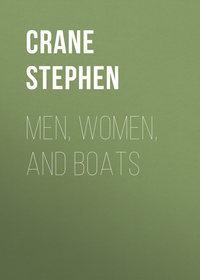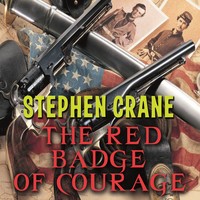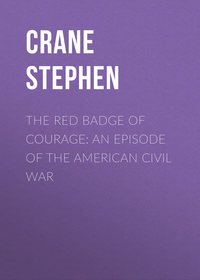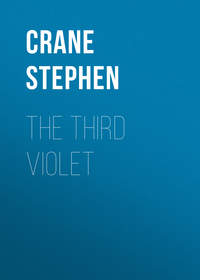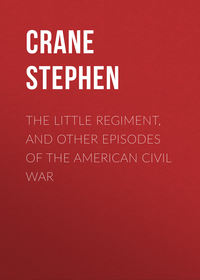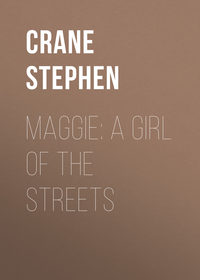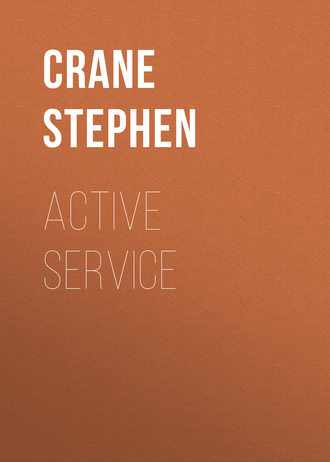 полная версия
полная версияActive Service
Nora was now very serious, almost doleful. She remained still for a time, casting at Coke little glances of hatred. " I don't see my way clear to ask any of the other fellows," she said at last, with considerable bitterness. " I'm not in the habit of conducting such enquiries."
Coke felt now that he disliked her, and he read plainly her dislike of him. If they were the two villains of the play, they were not having fun together at all. Each had some kind of a deep knowledge that their aspirations, far from colliding, were of such character that the success of one would mean at least assistance to the other, but neither could see how to confess if. Pethapt it was from shame, perhaps it was because Nora thought Coke to have little wit ; perhaps it was because Coke thought Nora to have little conscience. Their talk was mainly rudderless. From time to time Nora had an inspiration to come boldly at the point, but this inspiration was commonly defeated by, some extraordinary manifestation of Coke's incapacity. To her mind, then, it seemed like a proposition to ally herself to a butcher-boy in a matter purely sentimental. She Wondered indignantly how she was going to conspire With this lad, who puffed out his infantile cheeks in order to conceitedly demonstrate that he did not understand the game at all. She hated Marjory for it. Evidently it was only the weaklings who fell in love with that girl. Coleman was an exception, but then, Coleman was misled, by extraordinary artifices. She meditatecf for a moment if she should tell Coke to go home and not bother her. What at last decided the question was his unhappiness. Shd clung to this unhappiness for its value as it stood alone, and because its reason for existence was related to her own unhappiness. " You Say you are not going back toAthens with your party. I don't suppose you're going to stay here. I'm going back to Athens to-day. I came up here to see a battle, but it doesn't seem that there are to be any more battles., The fighting will now all be on the other side of'the mountains." Apparent she had learned in some haphazard way that the Greek peninsula was divided by a spine of almost inaccessible mountains, and the war was thus split into two simultaneous campaigns. The Arta campaign was known to be ended. "If you want to go back to Athens without consorting with your friends, you had better go back with me. I can take you in my carriage as far as the beginning of the railroad. Don't you worry. You've got money enough, haven't you ? The pro- fessor isn't keeping your money ?"
"Yes," he said slowly, "I've got money enough." He was apparently dubious over the proposal. In their abstracted walk they had arrived in front of the house occupied by Coleman and the Wainwright party. Two carriages, forlorn in dusty age, stood be- fore the door. Men were carrying out new leather luggage and flinging it into the traps amid a great deal of talk which seemed to refer to nothing. Nora and Coke stood looking at the scene without either thinking of the importance of running away, when out tumbled seven students, followed immediately but in more decorous fashion by the Wainwrights and Coleman.
Some student set up a whoop. " Oh, there he is. There's Coke. Hey, Coke, where you been? Here he is, professor." For a moment after the hoodlum had subsided, the two camps stared at each other in silence.
CHAPTER XX
NORA and Coke were an odd looking pair at the time. They stood indeed as if rooted to the spot, staring vacuously, like two villagers, at the surprising travellers. It was not an eternity before the practiced girl of the stage recovered her poise, but to the end of the incident the green youth looked like a culprit and a fool. Mrs. Wainwright's glower of offensive incredulity was a masterpiece. Marjory nodded pleasantly; the professor nodded. The seven students clambered boisterously into the forward carriage making it clang with noise like a rook's nest. They shouted to Coke. " Come on; all aboard; come on, Coke; – we're off. Hey, there, Cokey, hurry up." The professor, as soon as he had seated himself on the forward seat of' the second carriage, turned in Coke's general direction and asked formally: " Mr. Coke, you are coming with us ? " He felt seemingly much in doubt as to the propriety of abandoning the headstrong young man, and this doubt was not at all decreased by Coke's appearance with Nora Black. As far as he could tell, any assertion of authority on his part would end only in a scene in which Coke would probably insult him with some gross violation of collegiate conduct. As at first the young man made no reply, the professor after waiting spoke again. "You understand, Mr. Coke, that if you separate yourself from the party you encounter my strongest disapproval, and if I did not feel responsible to the college and your father for your safe journey to New York I-I don't know but what I would have you ex- pelled by cable if that were possible."
Although Coke had been silent, and Nora Black had had the appearance of being silent, in reality she had lowered her chin and whispered sideways and swiftly. She had said: " Now, here's your time. Decide quickly, and don't look such a wooden Indian." Coke pulled himself together with a visible effort, and spoke to the professor from an inspiration in which he had no faith. " I understand my duties to you, sir, perfectly. I also understand my duty to the college. But I fail to see where either of these obligations require me to accept the introduction of objectionable people into the party. If I owe a duty to the college and to you, I don't owe any to Coleman, and, as I understand it, Coleman was not in the original plan of this expedition. If such had been the case, I would not have been here. I can't tell what the college may see fit to do, but as for my father I I have no doubt of how he will view it."
The first one to be electrified by the speech was Coke himself. He saw with a kind of sub-conscious amazement this volley of bird-shot take effect upon the face of the old professor. The face of Marjory flushed crimson as if her mind had sprung to a fear that if Coke could develop ability in this singular fashion he might succeed in humiliating her father in the street in the presence of the seven students, her mother, Coleman and-herself. She had felt the bird- shot sting her father.
When Coke had launched forth, Coleman with his legs stretched far apart had just struck a match on the wall of the house and was about to light a cigar. His groom was leading up his horse. He saw the value of Coke's argument more appreciatively and sooner perhaps than did Coke. The match dropped from his fingers, and in the white sunshine and still air it burnt on the pavement orange coloured and with langour. Coleman held his cigar with all five fingers-in a manner out of all the laws of smoking. He turned toward Coke. There was danger in the moment, but then in a flash it came upon him that his role was not of squabbling with Coke, far less of punching him. On the contrary, he was to act the part of a cool and instructed man who refused to be waylaid into foolishness by the outcries of this pouting youngster and who placed himself in complete deference to the wishes of the professor. Before the professor had time to embark upon any reply to Coke, Coleman was at the side of the carriage and, with a fine assumption of distress, was saying: "Professor, I could very easily ride back to Agrinion alone. It would be all right. I don't want to-"
To his surprise the professor waved at him to be silent as if he were a mere child. The old man's face was set with the resolution of exactly what hewas going to say to Coke. He began in measured tone, speaking with feeling, but with no trace of anger.
" Mr. Coke, it has probably escaped your attention that Mr. Coleman, at what I consider a great deal of peril to himself, came out to rescue this party-you and others-and although he studiously disclaims all merit in his finding us and bringing us in, I do not regard it in that way, and I am surprised that any member of this party should conduct himself in this manner toward a man who has been most devotedly and generously at our service." It was at this time that the professor raised himself and shook his finger at Coke, his voice now ringing with scorn. In such moments words came to him and formed themselves into sentences almost too rapidly for him to speak them. " You are one of the most remarkable products of our civilisation which I have yet come upon. What do you mean, sir? Where are your senses? Do you think that all this pulling and pucking is manhood? I will tell you what I will do with you. I thought I brought out eight students to Greece, but when I find that I brought out, seven students and—er—an—ourang-outang—don't get angry, sir—I don't care for your anger—I say when I discover this I am naturally puzzled for a moment. I will leave you to the judgment of your peers. Young gentlemen! " Of the seven heads of the forward carriage none had to be turned. All had been turned since the beginning of the talk. If the professor's speech had been delivered in one of the class-rooms of Washurst they would have glowed with delight over the butchery of Coke, but they felt its portentous aspect. Butchery here in Greece thousands of miles from home presented to them more of the emphasis of downright death and destruction. The professor called out " Young gentlemen, I have done all that I can do without using force, which, much to my regret, is impracticable. If you will persuade your fellow student to accompany you I think our consciences will be the better for not having left a weak minded brother alone among the by-paths." The valuable aggregation of intelligence and refine- ment which decorated the interior of the first carriage did not hesitate over answering this appeal. In fact, his fellow students had worried among themselves over Coke, and their desire to see him come out of his troubles in fair condition was intensified by the fact that they had lately concentrated much thought upon him. There was a somewhat comic pretense of speaking so that only Coke could hear. Their chorus was law sung. " Oh, cheese it, Coke. Let up on your-self, you blind ass. Wait till you get to Athens and then go and act like a monkey. All this is no good-"
The advice which came from the carriage was all in one direction, and there was so much of it that the hum of voices sounded like a wind blowing through a forest.
Coke spun suddenly and said something to Nora Black. Nora laughed rather loudly, and then the two turned squarely and the Wainwright party contemplated what were surely at that time the two most insolent backs in the world.
The professor looked as if he might be going to have a fit. Mrs. Wainwright lifted her eyes toward heaven, and flinging out her trembling hands, cried: " Oh, what an outrage. What an outrage! That minx-" The concensus of opinion in the first carriage was perfectly expressed by Peter Tounley, who with a deep drawn breath, said : " Well, I'm damned! " Marjory had moaned and lowered her head as from a sense of complete personal shame. Coleman lit his cigar and mounted his horse. " Well, I suppose there is nothing for it but to be off, professor? " His tone was full of regret, with sort of poetic regret. For a moment the professor looked at him blankly, and then gradually recovered part of his usual manner. " Yes," he said sadly, " there is nothing for it but to go on." At a word from the dragoman, the two impatient drivers spoke gutturally to their horses and the car- riages whirled out of Arta. Coleman, his dragoman and the groom trotted in the dust from the wheels of the Wainwright carriage. The correspondent always found his reflective faculties improved by the constant pounding of a horse on the trot, and he was not sorry to have now a period for reflection, as well as this artificial stimulant. As he viewed the game he had in his hand about all the cards that were valuable. In fact, he considered that the only ace against him was Mrs. Wainwright. He had always regarded her as a stupid person, concealing herself behind a mass of trivialities which were all conventional, but he thought now that the more stupid she was and the more conventional in her triviality the more she approached to being the very ace of trumps itself. She was just the sort of a card that would come upon the table mid the neat play of experts and by some inexplicable arrangement of circumstance, lose a whole game for the wrong man. After Mrs. Wainwright he worried over the students. He believed them to be reasonable enough; in fact, he honoured them distinctly in regard to their powers of reason, but he knew that people generally hated a row. It, put them off their balance, made them sweat over a lot of pros and cons, and prevented them from thinking for a time at least only of themselves. Then they came to resent the principals in a row. Of course the principal, who was thought to be in the wrong, was the most rescnted, but Coleman be- lieved that, after all, people always came to resent the other principal, or at least be impatient and suspicious of him. If he was a correct person, why was he in a row at all? The principal who had been in the right often brought this impatience and suspicion upon himself, no doubt, by never letting the matter end, continuing to yawp about his virtuous suffering, and not allowing people to return to the steady contemplation of their own affairs. As a precautionary measure he decided to say nothing at all about the late trouble, unless some one addressed him upon it. Even then he would be serenely laconic. He felt that he must be popular with the seven students. In the first place, it was nice that in the presence of Marjory they should like him, and in the second place he feared to displease them as a body because he believed that he had some dignity. Hoodlums are seldom dangerous to other hoodlums, but if they catch pomposity alone in the field, pomposity is their prey. They tear him to mere bloody ribbons, amid heartless shrieks. When Coleman put himself on the same basis with the students, he could cope with them easily, but he did not want the wild pack after him when Marjory could see the chase. And so be rea- soned that his best attitude was to be one of rather taciturn serenity.
On the hard military road the hoofs of the horses made such clatter that it was practically impossible to hold talk between the carriages and the horsemen without all parties bellowing. The professor, how- ever, strove to overcome the difficulties. He was apparently undergoing a great amiability toward Coleman. Frequently he turned with a bright face, and pointing to some object in the landscape, obviously tried to convey something entertaining to Coleman's mind. Coleman could see his lips mouth the words. He always nodded cheerily in answer and yelled.
The road ultimately became that straight lance-handle which Coleman-it seemed as if many years had passed-had traversed with his dragoman and the funny little carriers. He was fixing in his mind a possible story to the Wainwrights about the snake and his first dead Turk. But suddenly the carriages left this road and began a circuit of the Gulf of Arta, winding about an endless series of promontories. The journey developed into an excess of dust whirling from a road, which half circled the waist of cape after cape. All dramatics were lost in the rumble of wheels and in the click of hoofs. They passed a little soldier leading a prisoner by a string. They passed more frightened peasants, who seemed resolved to flee down into the very boots of Greece. And people looked at them with scowls, envying them their speed. At the little town from which Coleman embarked at one stage of the upward journey, they found crowds in the streets. There was no longer any laughter, any confidence, any vim. All the spirit of the visible Greek nation seemed to have been knocked out of it in two blows. But still they talked and never ceased talking. Coleman noticed that the most curious changes had come upon them since his journey to the frontier. They no longer approved of foreigners. They seemed to blame the travellers for something which had transpired in the past few days. It was not that they really blamed the travellers for the nation's calamity: It was simply that their minds were half stunned by the news of defeats, and, not thinking for a moment to blame themselves, or even not thinking to attribute the defeats to mere numbers and skill, they were savagely eager to fasten it upon something near enough at hand for the operation of vengeance.
Coleman perceived that the dragoman, all his former plumage gone, was whining and snivelling as he argued to a dark-browed crowd that was running beside the cavalcade. The groom, who always had been a miraculously laconic man, was suddenly launched forth garrulously. The, drivers, from their high seats, palavered like mad men, driving with oat hand and gesturing with the other, explaining evidently their own great innocence.
Coleman saw that there was trouble, but he only sat more stiffly in his saddle. The eternal gabble moved him to despise the situation. At any rate, the travellers would soon be out of this town and on to a more sensible region.
However he saw the driver of the first carriage sud- denly pull up boforg a little blackened coffee shop and inn. The dragman spurred forward and began wild expostulation. The second carriage pulled close behind the other. The crowd, murmuring like a Roman mob in Nero's time, closed around them.
CHAPTER XXI
COLEMAN pushed his horse coolly through to the dragoman;s side. " What is it ? " he demanded. The dragoman was broken-voiced. " These peoples, they say you are Germans, all Germans, and they are angry," he wailed. " I can do nossing-nossing."
" Well, tell these men to drive on," said Coleman, "tell them theymust drive on."
" They will not drive on," wailed the dragoman, still more loudly. " I can do nossing. They say here is place for feed the horse. It is the custom and they will note drive on."
" Make them drive on."
" They will note," shrieked the agonised servitor. Coleman looked from the men waving their arms and chattering on the box-seats to the men of the crowd who also waved their arms and chattered. In this throng far to the rear of the fighting armies there did not seem to be a single man who was not ablebodied, who had not been free to enlist as a soldier. They were of that scurvy behind-the-rear-guard which every nation has in degree proportionate to its worth. The manhood of Greece had gone to the frontier, leaving at home this rabble of talkers, most of whom were armed with rifles for mere pretention. Coleman loathed them to the end of his soul. He thought them a lot of infants who would like to prove their courage upon eleven innocent travellers, all but unarmed, and in this fact he was quick to see a great danger to the Wainwright party. One could deal with soldiers; soldiers would have been ashamed to bait helpless people ; but this rabble-
The fighting blood of the correspondent began to boil, and he really longed for the privilege to run amuck through the multitude. But a look at the Wainwrights kept him in his senses. The professor had turned pale as a dead man. He sat very stiff and still while his wife clung to him, hysterically beseeching him to do something, do something, although what he was to do she could not have even imagined.
Coleman took the dilemma by its beard. He dismounted from his horse into the depths of the crowd and addressed the Wainwrights. " I suppose we had better go into this place and have some coffee while the men feed their horses. There is no use in trying to make them go on." His manner was fairly casual, but they looked at him in glazed horror. " It is the only thing to do. This crowd is not nearly so bad as they think they are. But we've got to look as if we felt confident." He himself had no confidence with this angry buzz in his ears, but be felt certain that the only correct move was to get everybody as quickly as possible within the shelter of the inn. It might not be much of a shelter for them, but it was better than the carriages in the street.
The professor and Mrs. Wainwright seemed to be considering their carriage as a castle, and they looked as if their terror had made them physically incapable of leaving it. Coleman stood waiting. Behind him the clapper-tongued crowd was moving ominously. Marjory arose and stepped calmly down to him. He thrilled to the end of every nerve. It was as if she had said: " I don't think there is great danger, but if there is great danger, why * * here I am * ready * with you." It conceded everything, admitted everything. It was a surrender without a blush, and it was only possible in the shadow of the crisis when they did not know what the next moments might contain for them. As he took her hand and she stepped past him he whispered swiftly and fiercely in her ear, " I love you." She did not look up, but he felt that in this quick incident they had claimed each other, accepted each other with a far deeper meaning and understanding than could be possible in a mere drawing-room. She laid her hand on his arm, and with the strength of four men he twisted his horse into the making of furious prancing side-steps toward the door of the inn, clanking side- steps which mowed a wide lane through the crowd for Marjory, his Marjory. He was as haughty as a new German lieutenant, and although he held the fuming horse with only his left hand, he seemed perfectly capable of hurling the animal over a house without calling into service the arm which was devoted to Marjory.
It was not an exhibition of coolness such as wins applause on the stage when the hero placidly lights a cigarette before the mob which is clamouring for his death. It was, on the contrary, an exhibition of downright classic disdain, a disdain which with the highest arrogance declared itself in every glance of his eye into the faces about him. " Very good * * attack me if you like * * there is nothing to prevent it * * you mongrels." Every step of his progress was made a renewed insult to them. The very air was charged with what this lone man was thinking of this threatening crowd.
His audacity was invincible. They actually made way for it as quickly as children would flee from a ghost. The horse, dancing; with ringing steps, with his glistening neck arched toward the iron hand at his bit, this powerful, quivering animal was a regular engine of destruction, and they gave room until Coleman halted him -at an exclamation from Marjory.
" My mother and father." But they were coming close behind and Coleman resumed this contemptuous journey to the door of the inn. The groom, with his new-born tongue, was clattering there to the populace. Coleman gave him the horse and passed after the Wainwrights into the public room of the inn. He was smiling. What simpletons!
A new actor suddenly appeared in the person of the keeper of the inn. He too had a rifle and a prodigious belt of cartridges, but it was plain at once that he had elected to be a friend of the worried travellers. A large part of the crowd were thinking it necessary to enter the inn and pow-wow more. But the innkeeper stayed at the door with the dragoman, and together they vociferously held back the tide. The spirit of the mob had subsided to a more reasonable feeling. They no longer wished to tear the strangers limb from limb on the suspicion that they were Germans. They now were frantic to talk as if some inexorable law had kept them silent for ten years and this was the very moment of their release. Whereas, their simul- taneous and interpolating orations had throughout made noise much like a coal-breaker. Coleman led the Wainwrights to a table in a far part of the room. They took chairs as if he had com- manded them. " What an outrage," he said jubilantly. " The apes." He was keeping more than half an eye upon the door, because he knew that the quick coming of the students was important.
Then suddenly the storm broke in wrath. Something had happened in the street. The jabbering crowd at the door had turned and were hurrying upon some central tumult. The dragoman screamed to Coleman. Coleman jumped and grabbed the dragoman. " Tell this man to take them somewhere up stairs," he cried, indicating the Wainwrights with a sweep of his arm. The innkeeper seemed to understand sooner than the dragoman, and he nodded eagerly. The professor was crying: "What is it, Mr. Coleman? What is it ? " An instant later, the correspondent was out in the street, buffeting toward a scuffle. Of course it was the students. It appeared, afterward, that those seven young men, with their feelings much ruffled, had been making the best of their way toward the door of the inn, when a large man in the crowd, during a speech which was surely most offensive, had laid an arresting hand on the shoulder of Peter Tounley. Whereupon the excellent Peter Tounley had hit the large man on the jaw in such a swift and skilful manner that the large man had gone spinning through a group of his countrymen to the hard earth, where he lay holding his face together and howling. Instantly, of course, there had been a riot. It might well be said that even then the affair could have ended in a lot of talking, but in the first place the students did not talk modern Greek, and in the second place they were now past all thought of talking. They regarded this affair seriously as a fight, and now that they at last were in it, they were in it for every pint of blood in their bodies. Such a pack of famished wolves had never before been let loose upon men armed with Gras rifles.


